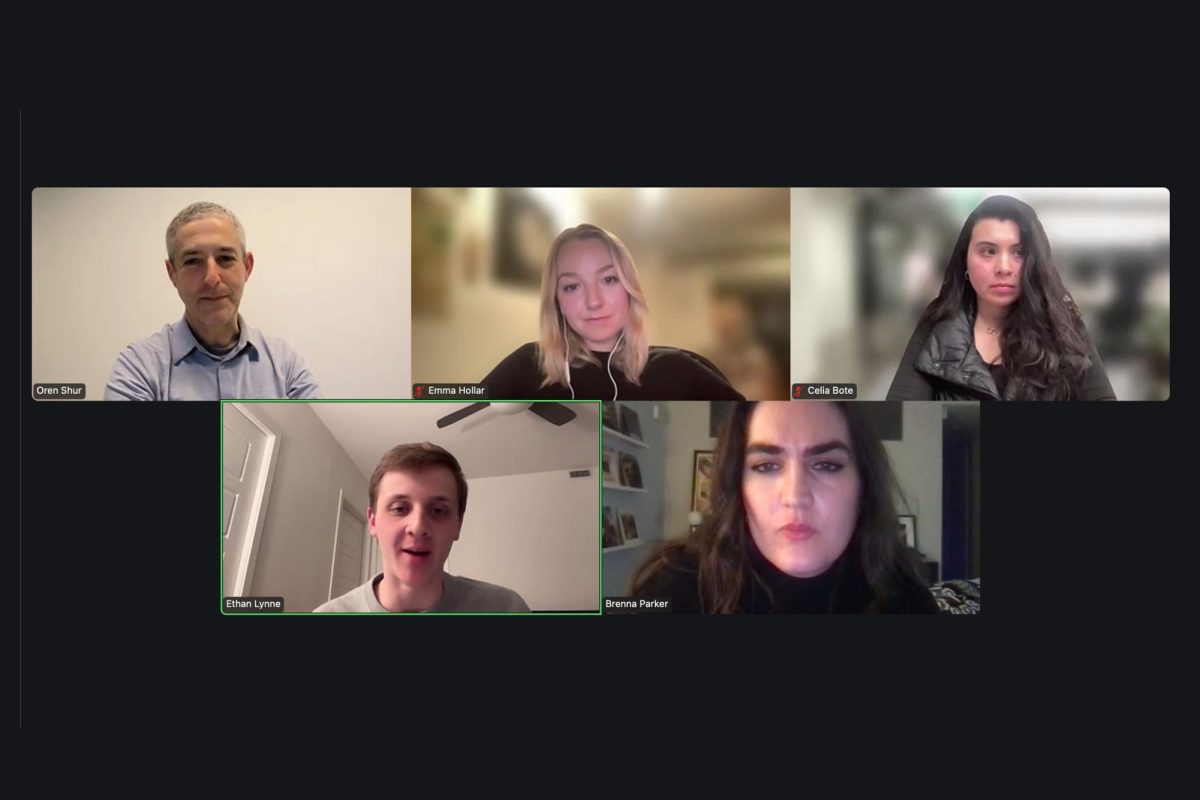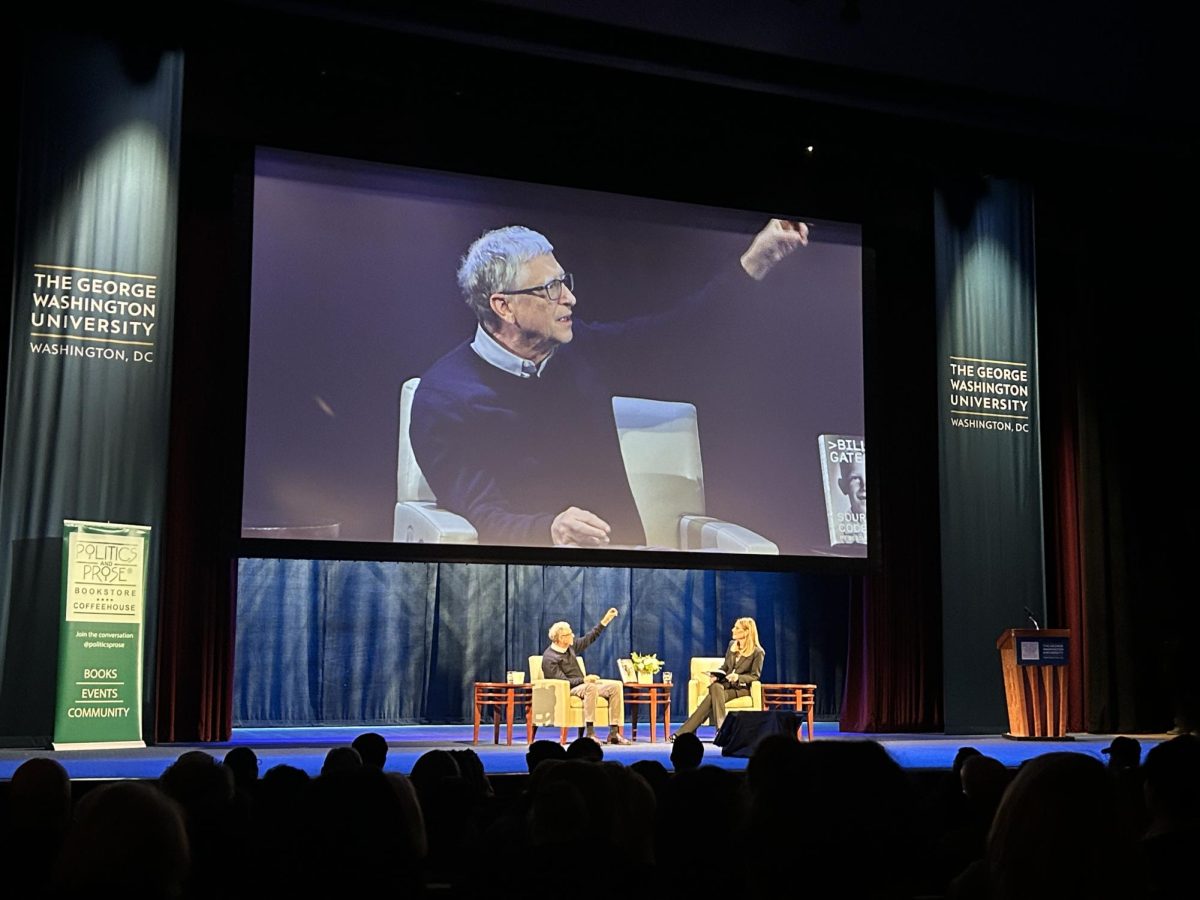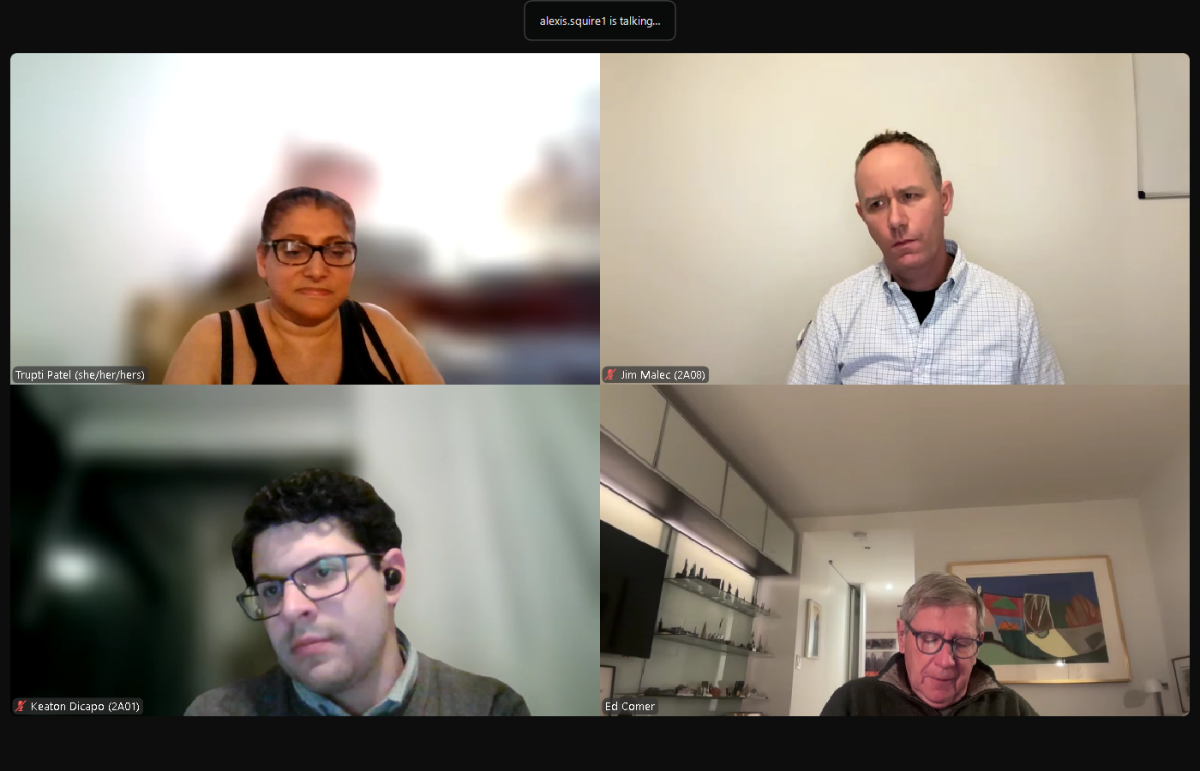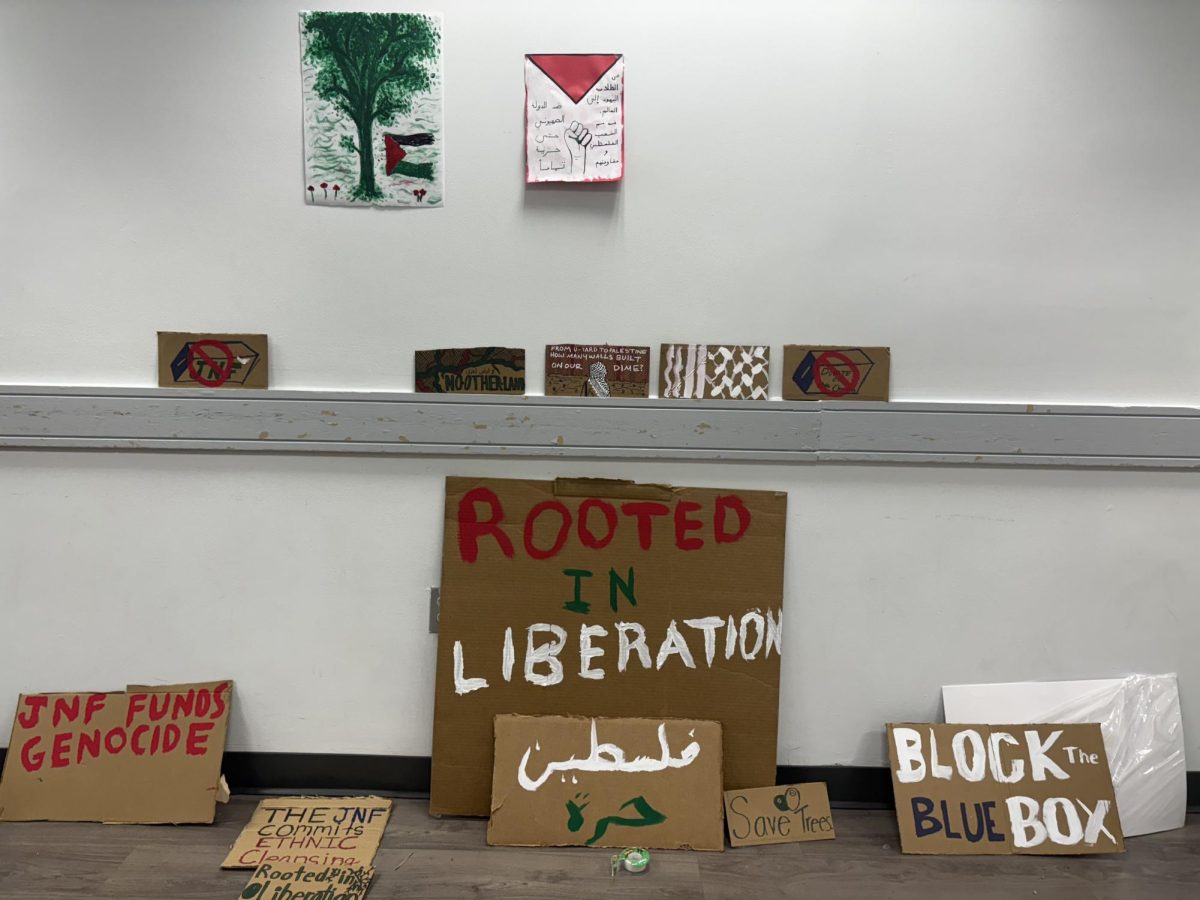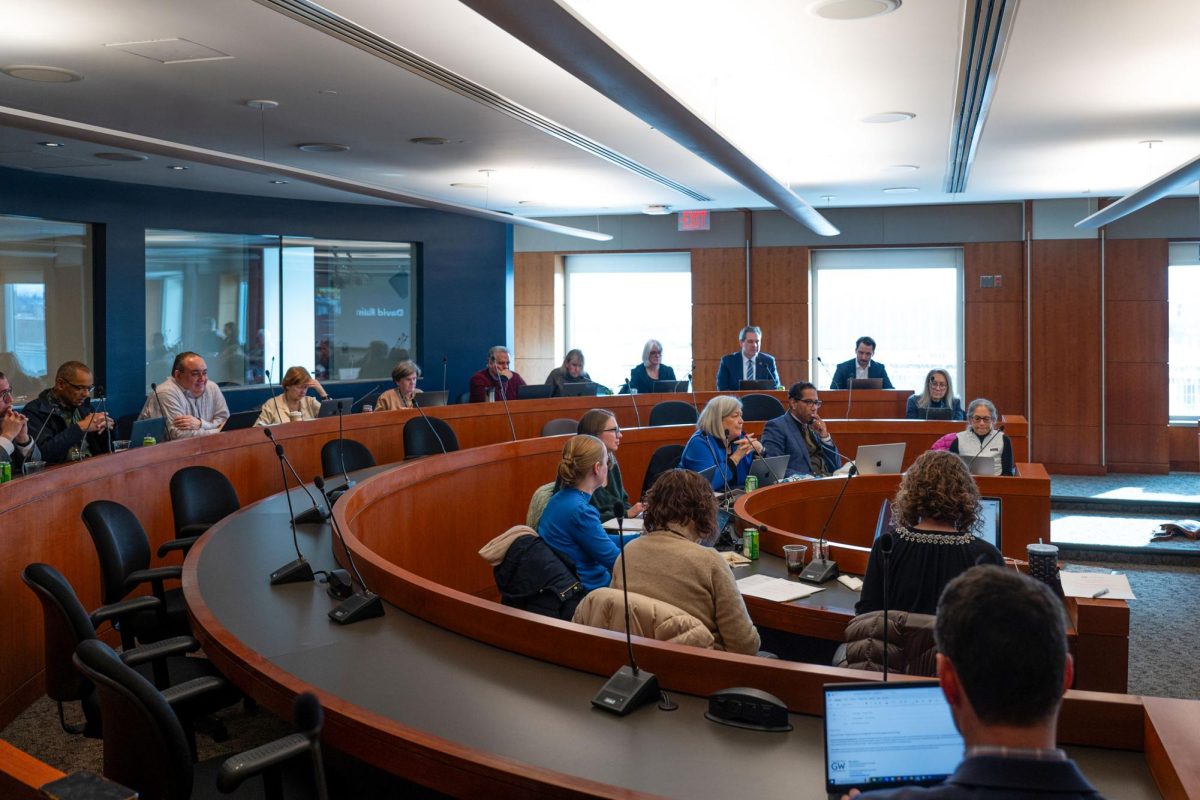President Joe Biden’s campaign manager discussed her career and the growing Latino influence on politics at the School of Media & Public Affairs on Wednesday.
Julie Chavez Rodriguez, the first Latina to manage a president’s reelection bid and a former senior advisor to Biden, said political campaign officials must recognize that Latinos are not a “monolith” but encompass a diverse set of experiences, viewpoints and needs. The Cisneros Hispanic Leadership Institute hosted the conversation with CBS News Political Correspondent Ed O’Keefe.
Chavez Rodriguez said campaign officials have done a better job since she first started working in politics by creating targeted messages for specific Latino communities across the country, even incorporating “Spanglish” into campaign messaging.
“We’re more intentional about the communities that we’re reaching out to, how we’re choosing to show up in communities and connect with communities,” Chavez Rodriguez said.
Chavez Rodriguez said the Democratic Party shouldn’t discount Latino voters in battleground states like Pennsylvania and Wisconsin because their votes could impact narrow elections. She noted that the 2020 presidential election was won by 45,000 votes in Arizona, Georgia and Wisconsin.
“These are communities throughout our country that have significant populations, and we as the Democratic Party need to understand that and to make sure that we’re factoring all of that into the work,” Chavez Rodriguez said.
Chavez Rodriguez said, as the U.S. Latino population continues to grow, the population has not “fully” stepped into the political power they have.
“I agree that demographics are not destiny,” Chavez Rodriguez said. “But I think there are more important ways that we can continue to understand the demographic shift, and what that means for our ability to build power in different sectors and then new ways within the country.”
Chavez Rodriguez, the granddaughter of labor activist Cesar Chavez, said her experiences handing out leaflets and picketing for better working conditions for farm workers with her family in California during the 1980s taught her how to organize communities to initiate change. At nine years old, Chavez Rodrguez was arrested for handing out leaflets in front of a grocery store with her family.
“It was civil disobedience, and that was like a badge of honor,” she said. “Some kids have Girl Scouts, and they get badges for different things; this was my badge. Some families went on family picnics, we went on family pickets.”
Chavez Rodriguez said her grandfather’s activism for farm workers serves as inspiration for what she hopes to accomplish with her career.
“My grandfather always demonstrated what was possible,” Chavez Rodriguez said. “He was a small brown man and a farm worker who didn’t come from a lot but was able to, through his own action, show others what they were capable of and what was possible in their own lives.”
Chavez Rodriguez said she was honored that President Biden chose to keep a bust of her grandfather in the Oval Office.
“It was seeing the ultimate respect paid to farmworkers by being able to see my grandfather’s bust in the Oval Office,” said Chavez Rodriguez. “One of what some would consider the most powerful places in the world, and to see homage paid to the people who put food on our table every day. It was overwhelming.”
Chavez Rodriguez said she first got involved in politics during Barack Obama’s 2008 campaign while organizing with the United Farm Workers union. She worked in the White House Office of Public Engagement under the Obama administration from 2011-17 and later served as chief of staff for Kamala Harris’ 2020 presidential campaign until 2019. She was director of the White House Office of Intergovernmental Affairs from 2021 until her promotion to senior advisor in 2022.
“My grandfather had this saying that there’s no substitute for hard work,” Chavez Rodriguez said. “There’s no quick way for him, there wasn’t a quick way to try to get farmworkers to believe that they could change their own conditions that it took, literally going door to door and house to house and worker to worker.”




